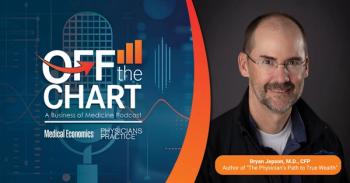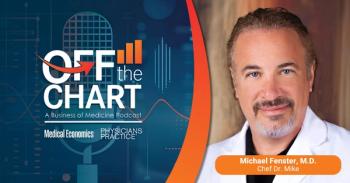
Five Activities When It's Okay for Docs to Multitask
Physicians pride themselves on their ability to multitask on the job. But at home, it is often better to slow down, with these exceptions.
Physicians wouldn't think of multitasking when undertaking a medical procedure for a patient - they instinctively know that they wouldn't be able to do their best work and that the practice would be too risky. When it comes to lower level activities, however, particularly once they step out of the office, the way many physicians regard multitasking seems to change immediately. For some reason, they proceed as if they have green light to double up on tasks and activities.
Multitasking might be universally practiced by physicians, but even away from the office it is still harmful in many instances. There is a need to disengage in multitasking, far more than most people realize. However, there are times when it's permissible to do more than one thing at a time. Obviously, at dinner with a friend or loved one you'll be talking and eating simultaneously. Generally, it's okay to drive and listen to the radio, CDs, or your iPod. The exception is when the decibel level is so high that your concentration is impaired.
The issue becomes foggy when it comes to, say, using a cell phone. Doubling up has the potential to diminish your concentration and increase the probability that you will be involved in an accident. Some people argue that cell phones come with speakers so that you can keep both hands on the wheel. The problem with being engaged in conversation and performing other tasks is that speaking requires far more brain activity than the passive act of listening to the radio or a CD player. If you insist on engaging in conversations with your cell phone while in the car, perhaps it's best for you to pull off to the side of the road.
Exercising with an iPod is not terrible, but it's not the greatest. I was at my health club recently and was bemused to see a lady who was not only on the stair climber with an iPod, but who also pulled out a book and proceeded to read it. I almost asked her if she wanted to chew some gum, to see if she could do four things at once.
The physical exercises in which you engage are ideally their own reward. Still, I know many people who use workout DVDs or get on a stationary bike while watching a movie or basketball on television. It seems to work well for them, so there's probably no real harm.
Activities where it's OK to double up include the following:
* Driving and playing music (but not driving and speaking on a cell phone)
* Exercising with an iPod
* Watching TV and exercising
* Walking and talking with a friend
* Taking notes as you listen to a lecture
You don't need to be entertained or as constantly active as much as you might think. The more often you can get into the habit of doing one thing at a time, the better you'll do, and the more time will slow down for you. Recall when you were studying in medical school, especially when an exam was approaching. You made the greatest strides when you cleared away the distractions and focused on the task at hand: learning the subject matter.
Now, years or decades later, what has really changed in terms of getting things done effectively whether at home or at work? To do this day, focusing on the task or activity at hand remains your best approach to being at your best!
Newsletter
Optimize your practice with the Physicians Practice newsletter, offering management pearls, leadership tips, and business strategies tailored for practice administrators and physicians of any specialty.








